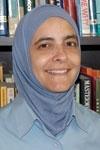Using AI to control energy for indoor agriculture
30 September 2024
Published online 23 October 2013

Education is a big topic for the United Nations at the moment. Across the world, officials, scientists and higher-education experts are discussing how to update the organization's Millennium Development Goals. One idea is that the proposed replacement, the Sustainable Development Goals, should widen the focus from school-age learning to the quality of higher education. Many of Nature's readers have experienced university teaching; many deliver it. All should have an opinion on it.
A high-level group set up by the European Commission to report on the quality of teaching in the region's higher-education institutions concluded that it is "an embarrassing disappointment". The report, published in June, added: "Serious commitment to best practice in the delivery of this core teaching mission is not universal, is sporadic at best and frequently reliant on the enlightened commitment of a few individuals." Similar concerns have been expressed about higher education in the United States.
The problem becomes more acute when set against the backdrop of continued economic uncertainty. As Chinese scientist Qiang Wang pointed out on this page earlier this year (see Nature 499 , 381; 2013 ), there is a worrying disconnect between what is taught in schools and universities, and the skills those students need in the real world. He was talking about China, but students everywhere face the same conundrum. We need to educate our youth to be entrepreneurs, so that they can create their own jobs despite the economic uncertainty.
Our objective in education must be to light a fire in the heart of every individual.
Students in the Arab world also face political uncertainty, as demonstrated by the events of the 'Arab Spring' and the continuing tensions. Despite some progress in education — in school enrolment, for example — the need for innovative teaching strategies is even more urgent here. Education reform in these countries tends to focus on the construction of new buildings, facilities and curricula. Knowledge, information and theories are presented as indisputable facts, and this creates students who struggle with the idea of uncertainty and who do not develop the analytical and problem-solving skills they need to prosper.
We need to shape and develop our own education systems. Simply reproducing Western models of education runs the risk of, among other issues, ignoring the configurations of politics, religion and gender unique to our region. Indeed, once the Arab world expands its innovative educational programmes, a healthy synergy between East and West can develop.
In my teaching of cell biology to university students in Jordan, I have introduced some innovations aimed at making the students think for themselves. As we all know, the media often inaccurately report science. I ask students to identify an item on the radio, television or in the newspapers, and to check whether it is true. Then they write to the media organization to outline their findings and add a note about the impact of misleading information on patients and the general public, and the importance of making the source of the story clear.
This is an example of what educators call 'service-learning'. The students learn through their own research, while simultaneously serving the community, in this case the media — which in theory could alter the way science is reported in the future. Service-learning lets students learn more than the facts; they discover the relevance of that knowledge to real life and how it affects a community. They see their role in building that community and acquire a sense of responsibility. When they graduate, they have more confidence to try to drive change, even in a world of unemployment or instability.
Many university students are not interested in some courses they take, often because they are obligatory. I see it with some students on my molecular-biology course. To pique their interest, ideally I would like to give them a relevant novel to read, say Darwin's Radio by Greg Bear. As well as covering the basic concepts of molecular biology, this book discusses the ethics of its application to real-world situations. Classroom discussion would be enlivened by discussion of the characters and themes, and the students would develop different points of reference for looking at a particular issue. Drama can also be used to teach biological mechanisms. Involving students personally in a three-dimensional world makes them think of the mechanism from the perspective of the molecule. They can then better understand the limitations, challenges, potential and beauty of cells.
Our societies do not need students who are merely textbook educated; we need students who can engage positively with society. Too often, higher education focuses on the former without paying attention to the latter. We are all potential entrepreneurs in the sense that we can easily identify problems. The bigger challenge, and where conventional education fails, is to enable us to overcome doubts and inhibitions and take action. The goal of higher education should be for students to learn to apply the knowledge and skills they acquire to the realm of everyday life.
As the poet William Butler Yeats said: "Education is not the filling of a pail, but the lighting of a fire." Our objective in education must be to light a fire in the heart of every individual.
This column was originally published in Nature on 23 October 2013.
doi:10.1038/nmiddleeast.2013.186
Stay connected: